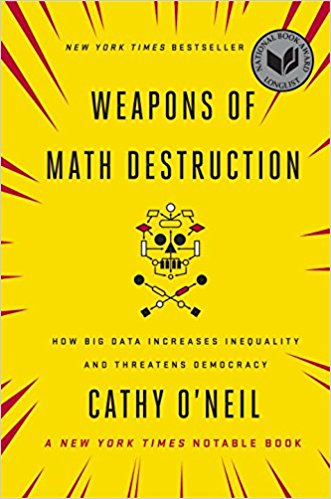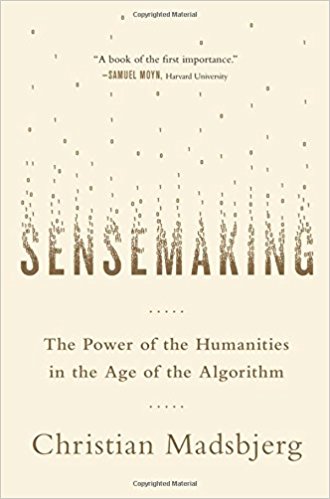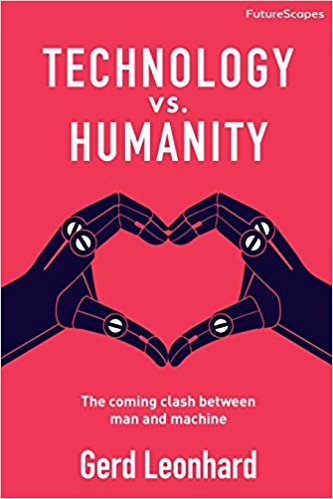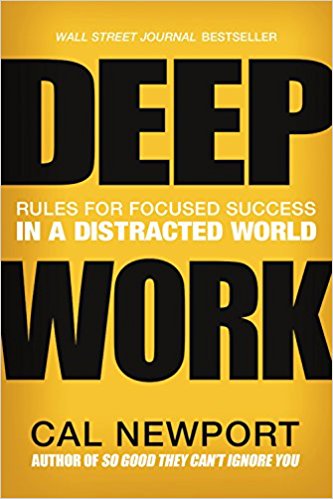Have you set a reading challenge for the summer? This is something different: challenge reading, not a reading challenge. Four books I've read recently that challenge our assumptions and normal ways of working in today's data-centric world. Have fun.
Programmed and dangerous First up is Cathy O'Neil's warning of the unintended consequences of giving decision-making authority to algorithms, Weapons of Math Destruction. Enlisting computers to take over the tedium of large-scale decision-making is great for efficiency, but the cost is the increase in systems that (1) harm the subjects of inquiry (2) at scale (3) without accountability. Absorbing her definition of a WMD, alone, is worth the price of admission.
First up is Cathy O'Neil's warning of the unintended consequences of giving decision-making authority to algorithms, Weapons of Math Destruction. Enlisting computers to take over the tedium of large-scale decision-making is great for efficiency, but the cost is the increase in systems that (1) harm the subjects of inquiry (2) at scale (3) without accountability. Absorbing her definition of a WMD, alone, is worth the price of admission.
Black-box scores are automating decisions about education, employment, credit, and even prison terms, using criteria that can be arbitrary, unfair, and unaccountable. Even the seemingly harmless work of ad targeting sometimes embodies the dark preferences of predatory businesses. This one's important for anyone working in analytics.
 Christian Madsbjerg wants us to toss the algos altogether in favor of older methods, arguing for the humanities in Sensemaking. More thought-provoking than how-to, he makes the case that we've inherited insights into human decision-making that have been developed over centuries (millennia, really) of effort in fields such as philosophy, psychology, and anthropology. As it turns out, work on understanding and anticipating human decisions didn't start with customer databases (who knew?).
Christian Madsbjerg wants us to toss the algos altogether in favor of older methods, arguing for the humanities in Sensemaking. More thought-provoking than how-to, he makes the case that we've inherited insights into human decision-making that have been developed over centuries (millennia, really) of effort in fields such as philosophy, psychology, and anthropology. As it turns out, work on understanding and anticipating human decisions didn't start with customer databases (who knew?).
Sensemaking is a bit heavy on promotion and light on description, but it's a quick and worthwhile read as a reminder that we have ways of knowing things that aren't packaged in software. His five principles are obvious but constructive, serving as a bit of antidote to big data's streetlight effect. His view of thick data would make a great starting point for a deeper dive.
 Moving beyond the data-to-decision world, the futurist Gerd Leonhard wonders how we preserve our humanity—and what that even means—as the future invents itself from forces already unleashed. Technology vs. Humanity is one of those books that sets out to map the consequences of multiple sources of change, starting with readily observable technological changes that we already live with.
Moving beyond the data-to-decision world, the futurist Gerd Leonhard wonders how we preserve our humanity—and what that even means—as the future invents itself from forces already unleashed. Technology vs. Humanity is one of those books that sets out to map the consequences of multiple sources of change, starting with readily observable technological changes that we already live with.
Leonhard makes much of that insight that changes are accelerating exponentially and affect us combinatorially. It's that combination of trends that happen "gradually, then suddenly" that threatens to change the world before we realize what's happening. Does it really add up to a future of us versus the machines? The point is that we should think about the possibilities before emergent characteristics of market-oriented developments make the big decisions for us.
Log out of Facebook Finally, here's something completely different and relevant whether or not you work in the data mines. Cal Newport suggests that knowledge workers set aside distractions and learn to focus on Deep Work. The catch is that "distractions" are most of what we do now, from email and meetings to hallway conversations and—yes—social media. Even collaboration tools, which are meant to foster a certain kind of productivity in work environments, create the conditions in which the highest value work can't happen.
Finally, here's something completely different and relevant whether or not you work in the data mines. Cal Newport suggests that knowledge workers set aside distractions and learn to focus on Deep Work. The catch is that "distractions" are most of what we do now, from email and meetings to hallway conversations and—yes—social media. Even collaboration tools, which are meant to foster a certain kind of productivity in work environments, create the conditions in which the highest value work can't happen.
Newport starts with a definition and defense of deep work, which includes some of the highest value work people do: inventing, coding, designing, writing, discovering… As we're changing the typical work environment to make deep work more difficult to do, its value is increasing. Computers aren't good at it, and we've distracted most of the people, so the reward for those who can do it may be growing.
The rest of the book is how-to, and the good news is that the method isn't complicated. The bad news is that you'll have to change your habits. Deep work requires that we create the mental space for it, which means cutting out some of the distractions that we like. The reward is in becoming better at the parts of what we do that are most likely to make the highlights reel.
